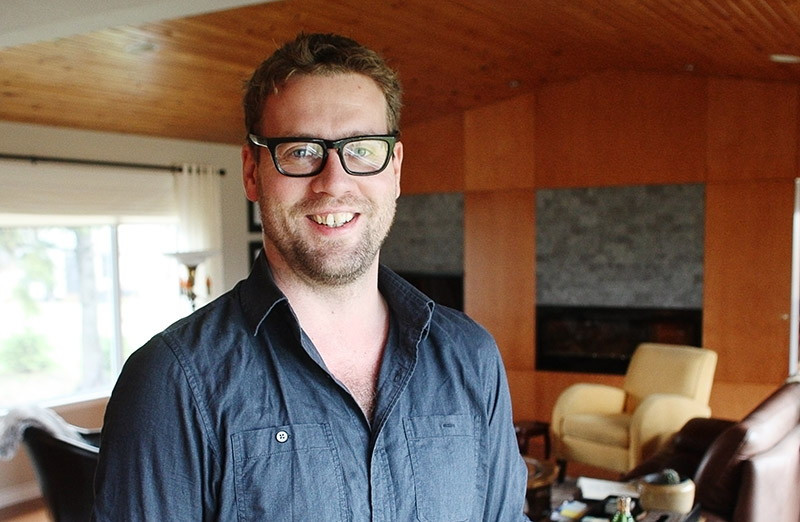Spectator Tribune launches online amid reports of Uptown layoffs
Journalism style may see a shift towards the subjective, says website founder
As another wave of job cuts strike Winnipeg’s print media landscape - this time hitting the Winnipeg Free Press-owned Uptown Magazine - one local entrepreneur has his sights set on the virtual gap being left behind.
Toban Dyck, publisher and editor of the recently launched, online-only, prairie-based web magazine Spectator Tribune, says talk of the impending demise of pulp publications is already old news.
“The funny thing is, people have been talking about the changing media climate for years,” said Dyck. “Well, it’s already changed.”
Launched on Oct. 15, the Spectator Tribune features content largely centered on local arts, culture and opinion.
The makeover of one print publication and subsequent launch of a new digital one, however, might represent more than just a shift across mediums.
According to Dyck, whose new brand will focus on commentary rather than breaking news, print media’s next step should be to embrace the subjectivity of its producers.
“The way breaking news is reported is pretty formulaic,” said Dyck, who has worked in various capacities for a number of media outlets, including the CBC and the National Post. “It’s not news itself that’s interesting - it’s how it’s presented.”
For Dyck, this means affording writers more freedom in terms of their adherence to long-held conventions of journalistic style.
“People want to read something that’s personal, that’s interesting,” he said. “A smart, thoughtful writer expressing their opinion is so much more interesting than the same old ‘quote, paraphrase, quote, paraphrase.’ It’s always been that way.”
Duncan McMonagle, a journalism instructor at Red River College, says this trend towards more unabashedly subjective journalism could be both a boon and a detriment to the overall quality of the industry.
“I think a lot of people who write personal journalism are wasting their time because their audience is one person: the author,” said McMonagle, who noted the ubiquity of digital media has given good and bad writers alike an increased ability to broadcast their opinions without the need to undergo third-party editing.
According to McMonagle, however, there will always be a need for the purportedly “objective” style of conventional journalism - even if the terminology itself is problematic.
“I don’t like the word ‘objective’ - I’ve never used it,” he said. “It’s a misleading conceit. I think it sets up an opposition that really isn’t there.”
Even so, little doubt remains that room for traditional print media outlets in town continues to decrease.
On Oct. 12, the Free Press announced impending changes to Uptown - bought out by FP Newspapers, the daily’s owner, in 2005 - that will see the one-time Uptown brand replace The Tab as the paper’s weekly arts feature insert.
While Free Press publisher Bob Cox refused to acknowledge consequent lay-offs, other sources confirm the weekly paper’s four staff - including writers Jen Zoratti and Marlo Campbell - will be out of work once the changes take place Nov. 1.
This comes less than a month after the Free Press, the oldest newspaper in Western Canada, cut seven staff from its newsroom in September.
Uptown staff declined to comment on the latest announcement.
According to McMonagle, a former executive editor of the Free Press, the paper might be taking the wrong approach to adapting to the changing market.
“The problem is a lot of media organizations are cutting in the wrong places,” he said. “They’re cutting the people who can actually help develop new audiences.”
In the cases of the Free Press and Uptown, recent layoffs have generally fallen on the shoulders of the publications’ youngest staffers.
“ The way breaking news is reported is pretty formulaic. It’s not news itself that’s interesting - it’s how it’s presented.
Toban Dyck, publisher, Spectator Tribune
“It’s unfortunate, because those are the people who were most active in social media and writing about things that matter more to younger readers,” said McMonagle.
James Hope Howard, a local blogger and frequent contributor to Uptown, called the change “unfortunate, but not unexpected.”
“The end of Uptown Magazine in its current format is, and I don’t think this overstates the matter, the end of an era,” Howard wrote in an email.
“I just polished off and sent in my final Uptown column, in fact,” he said, referring to the act - done from an airport terminal bench in Orlando - as “bittersweet.”
“An airport bar in Chicago might not know what hit it in four hours,” he added.
Local activist Nick Ternette, a regular contributor to Uptown before it was subsumed by FP Newspapers seven years ago - at which point his column was dropped from the publication - says the weekly’s format change might not be all bad.
“Uptown has had a very long life,” he said. “These things can’t stay the same forever.”
As for the city’s newest generation of journalists, the weather outside could certainly be nicer.
“It is a bit grim (for young writers) in Winnipeg,” said Dyck, who, aside from a business partner, currently comprises the entire staff of his new business.
“And I don’t like that. I don’t want to be the only game in town - that’s not fun.”
As for what the future holds: “People still want good content. That’s something that just doesn’t change,” said Dyck.
“All things considered, I still feel pretty optimistic about everything.”
Published in Volume 67, Number 8 of The Uniter (October 24, 2012)







